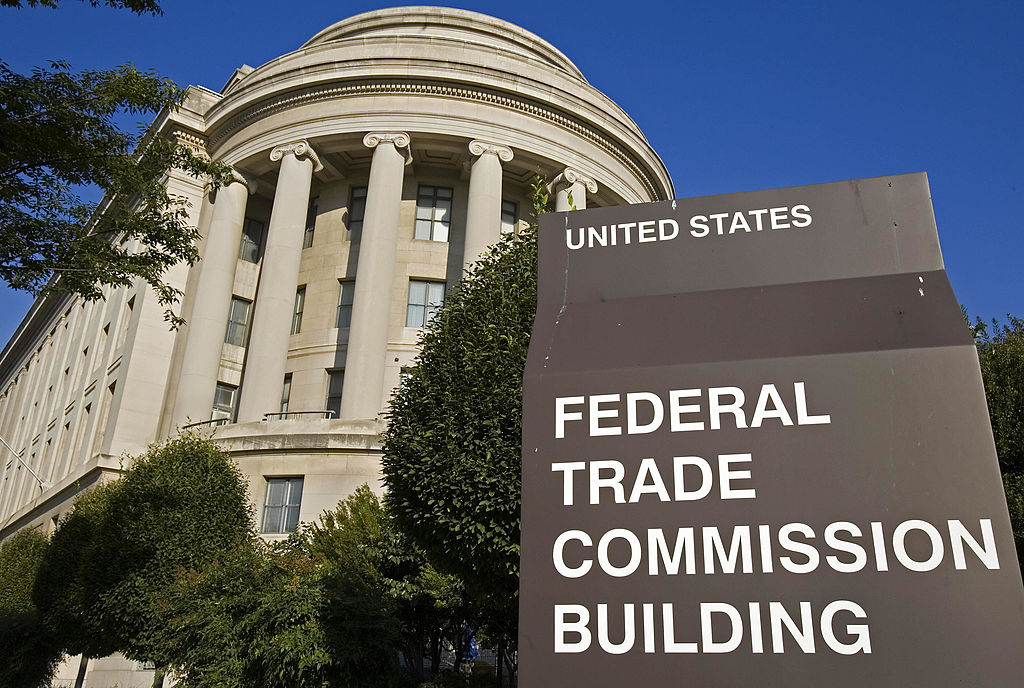House Republicans Press FTC on Personal Injury Drug Ads
Said lawsuits could hurt attempts to control pandemic

The smarter way to stay on top of the multichannel video marketplace. Sign up below.
You are now subscribed
Your newsletter sign-up was successful
Top House Energy & Commerce Committee Republicans want the Federal Trade Commission to crack down on what they said is misleading TV advertising by trial lawyers, ads they said could threaten the COVID-19 recovery.
In a letter Monday (Nov. 2) to FTC chairman Joseph Simons, the Republicans said they were talking about ads that lead viewers to believe that medications are unsafe. They argue the ads are schemes to generate lawsuits and thus revenues for the lawyers and are potentially illegal.
"As more therapeutics and vaccines come online to deal with the COVID-19 global pandemic, we are concerned that these lawsuit marketing and advertising practices will further hamper our country’s ability to bring this health crisis under control and save lives," they wrote.
The Republicans said plaintiff lawyers are putting their own interests ahead of public health and safety and the FTC needs to do something about it.
The FTC last year sent letters to seven lawyers and lead generators about TV ads that solicit clients for personal injury lawsuits against drug manufacturers that it said may be deceptive or unfair. The Republicans want to know the status of those inquiries and whether any action has been taken, plus answers to the following questions by Nov. 13.
1. "Do lawsuit advertisements that make claims that are not based on competent and reliable scientific evidence violate the FTC Act? If yes, please explain why. If not, please explain why not.
2. "Do lawsuit advertisements that include the FDA logo, when the FDA is not involved in the advertisement or related to the underlying action, violate the FTC Act? If yes, please explain why. If no, please explain why not.
3. "Do lawsuit advertisements that include the text or phrase “FDA Warning,” when the FDA is not involved in the advertisement or related to the underlying action, violate the FTC Act? If yes, please explain why. If no, please explain why not.
4. "Do lawsuit advertisements that include the text or phrase “medical alert” or “drug alert” violate the FTC Act? If yes, please explain why. If no, please explain why not.
5. "Does the FTC have the tools it needs to bring enforcement actions against plaintiff lawyers, legal practitioners, lead generators, or any other individual or organization responsible for deceptive lawsuit marketing and advertising practices? If no, please provide any recommendations for additional tools you may need, such as the request you recently made regarding your 13(b) authority.
6. "Does the FTC conduct any kind of outreach, such as lectures or workshops, to interest groups who represent the plaintiff bar, such as the American Association of Justice, so that such parties are aware of FTC guidelines, concerns over certain lawsuit marketing and advertising practices, and the enforcement tools available to protect vulnerable Americans? If not, does the FTC plan to conduct such outreach in the future?
7. "West Virginia, Texas, and Tennessee all have enacted laws that address deceptive lawsuit marketing and advertising practices within their respective states. Has the FTC reviewed such state laws and, if so, do you have any recommendation as to whether Congress should consider similar laws at the federal level?"
Signing on to the letter were House E&C ranking members Greg Walden (Ore.), full committee; Cathy McMorris Rodgers (Wash.), Consumer Protection Subcommittee; Michael Burgess, Health Subcommittee (Md.); Bob Latta (Ohio), Communications Subcommittee; and Brett Guthrie (Ky.), Oversight and Investigations Subcommittee.
The smarter way to stay on top of the multichannel video marketplace. Sign up below.
Contributing editor John Eggerton has been an editor and/or writer on media regulation, legislation and policy for over four decades, including covering the FCC, FTC, Congress, the major media trade associations, and the federal courts. In addition to Multichannel News and Broadcasting + Cable, his work has appeared in Radio World, TV Technology, TV Fax, This Week in Consumer Electronics, Variety and the Encyclopedia Britannica.

